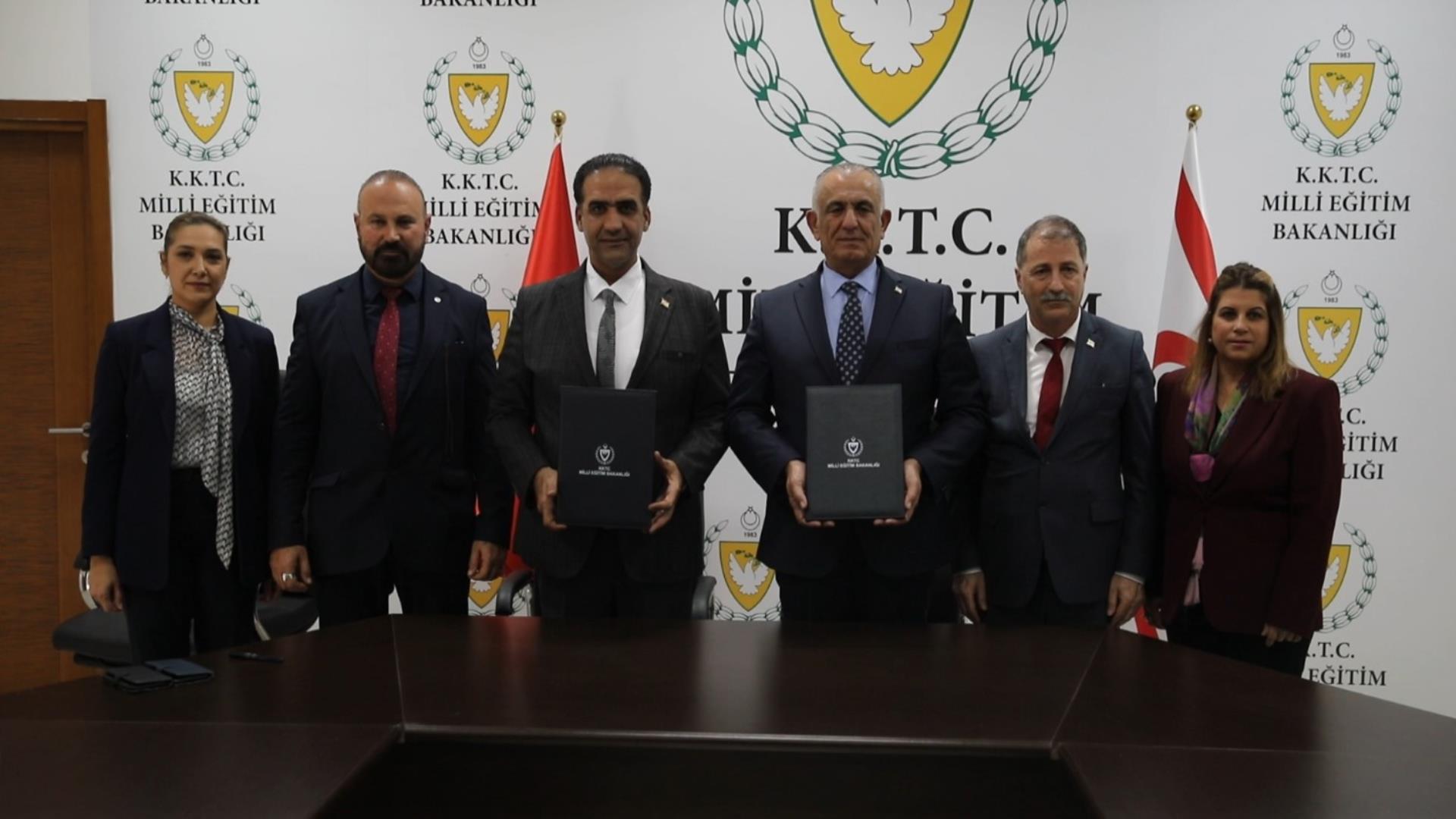
The Ministry of Labour and Social Security and the Ministry of National Education have renewed and revised a cooperation protocol aimed at enhancing the qualifications and integration of foreign workers entering the country’s labour market.
The agreement, initially implemented in 2019, was updated during a ceremony held at the Ministry of National Education, with the protocol signed by Minister of Labour and Social Security Sadık Gardiyanoğlu and Minister of National Education Nazım Çavuşoğlu.
The revised protocol focuses on ensuring that foreign workers meet specific standards under the Vocational Training Law and Vocational Qualification Law.
It aims to align the country’s workforce needs with skilled labour by setting qualifications and experience criteria.
As part of the updated measures, foreign workers will now be required to obtain a Work Eligibility Certificate, which will confirm their compliance with vocational training and experience standards determined jointly by the two ministries.
New conditions introduced under the protocol include mandatory certifications in Hygiene and Sanitation, Occupational Health and Safety, and A2-level Turkish language proficiency.
These requirements are designed to improve foreign workers’ professional qualifications while promoting their integration into the local workforce and society.
Speaking at the ceremony, Minister of Labour and Social Security Sadık Gardiyanoğlu stressed the importance of protecting the local workforce while ensuring that foreign workers adhere to national standards.
He noted that foreign workers seeking to renew work permits or transition within the same profession would need to complete specific training programs.
Gardiyanoğlu highlighted that certification under the protocol would not only elevate standards in the labour market but also safeguard opportunities for the local workforce.
Minister of National Education Nazım Çavuşoğlu underscored the protocol’s significance in ensuring that all workers in the country are certified.
He emphasized the need for coordination between ministries, particularly in addressing the challenges faced by foreign workers and their families, including language barriers.